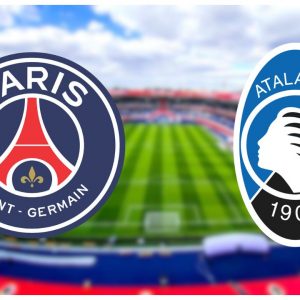Invited on Rothen s’enflamme on RMC Sport, Paris Saint-Germain’s sporting adviser Luis Campos explained the club’s philosophy regarding player workload management. With a deliberately small squad, internationals heavily solicited by their national teams, and the need to work hand-in-hand with the French Football Federation, the Portuguese executive walks a fine line.
Campos: “The players always tell me they’d rather play three times a week than twice.”
“We all thought about the transfer window together. The players always tell me they’d rather play three times a week than twice. It’s up to us, the technical and medical staff, to find solutions so that the players can do it. Today, PSG has such a strong connection between the various departments working in Poissy — with the coach having the final decision — it’s about understanding workload and recovery.”
Campos: “We’ve done extraordinary work on player load and recovery.”
“The medical team is more complex today: prevention, load, recovery, nutrition. We have data we didn’t have before. Modern football requires more matches. We played 65 games last season plus the internationals, almost without injury, because we did an extraordinary job on workload and recovery. We’re very modern at that level. Then there’s a time when players go to their national teams. When that happens, we’re very happy at PSG — it’s a sign we’re working well if we have a lot of internationals.”
Campos: “We have enormous respect for the FFF.”
On the French national team and communication
“We have enormous respect for the FFF, Didier Deschamps and his staff. When we send a player on international duty, we must communicate a lot about workload and recovery. We have data that shows players recover at different speeds. Vitinha recovers faster than others. It’s good for everyone if we communicate more.”
Campos: “If we share information, everyone wins.”
“I know UEFA is working on this because it’s not just a problem in France. It’s an evolution. Dembélé showed signs of fatigue and we communicated this to the FFF. In the future we need more communication for the good of the players and football. If we have more discussions about recovery, fatigue or workload, it’s easier for everyone to make decisions. If we share information, everyone wins: PSG, the player and the FFF. This is very important.”
Behind his measured tone, Luis Campos sketches a political battle PSG cannot ignore. With a smaller squad designed to boost competitiveness and limit frustration, the club inevitably exposes itself to the risk of burnout. In a calendar where its key players rotate between Ligue 1, the Champions League and international duty, Paris cannot realistically go two seasons without a major injury.
Campos knows the key lies in internal optimisation — data, medical monitoring, prevention, nutrition — but also in the ability to dialogue with the FFF. He cites Vitinha (24), a quick-recovering player, and Dembélé (27), whose fatigue PSG had reported, as examples of the need for transparency.
For PSG, the goal isn’t to oppose the French national team but to build an equal partnership where everyone protects their interests. Campos thus plays a delicate card: presenting himself as a loyal partner while reminding all parties that without coordination, PSG’s competitiveness could be compromised — and so could that of the national team. This carefully crafted speech on a major radio show is a classic Campos move.
Not everything is black and white; not everything is the FFF’s or Didier Deschamps’ fault. Perhaps the first step toward successful communication with the FFF is to do everything possible for transparency. Injuries are part of football; the whole world can’t be blamed when they happen.
